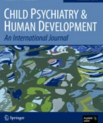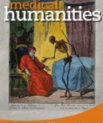Individual Differences in Language Acquisition and Processing
Article published in Trends in Cognitive Science

IDs are a pervasive feature of language acquisition and processing. Whereas IDs have been the focus of studies of, for instance, neurocognitive disorders, there is now an increasing focus on IDs across the entire spectrum of abilities.
IDs are evident across all components of the linguistic system, from the acquisition and processing of properties of speech, to complex grammatical structures and discourse.
IDs result from a complex interplay of endogenous cognitive systems and the environment. Understanding the contribution of these variables allows a better understanding of the mechanisms underlying human language.
Different theoretical approaches to language acquisition and processing make differing predictions regarding the nature of IDs in the population; therefore, IDs studies can contribute significantly to longstanding debates in the language sciences.
Humans differ in innumerable ways, with considerable variation observable at every level of description, from the molecular to the social. Traditionally, linguistic and psycholinguistic theory has downplayed the possibility of meaningful differences in language across individuals. However, it is becoming increasingly evident that there is significant variation among speakers at any age as well as across the lifespan. Here, we review recent research in psycholinguistics, and argue that a focus on individual differences (IDs) provides a crucial source of evidence that bears strongly upon core issues in theories of the acquisition and processing of language; specifically, the role of experience in language acquisition, processing, and attainment, and the architecture of the language system.
Article:
Kidd, E.; Donnelly, S. and Christiansen, M. H. (2018): Individual Differences in Language Acquisition and Processing. Trends in Cognitive Science. TICS 1743
Contact: Professor Morten H. Christiansen, IMC and Cornell University



